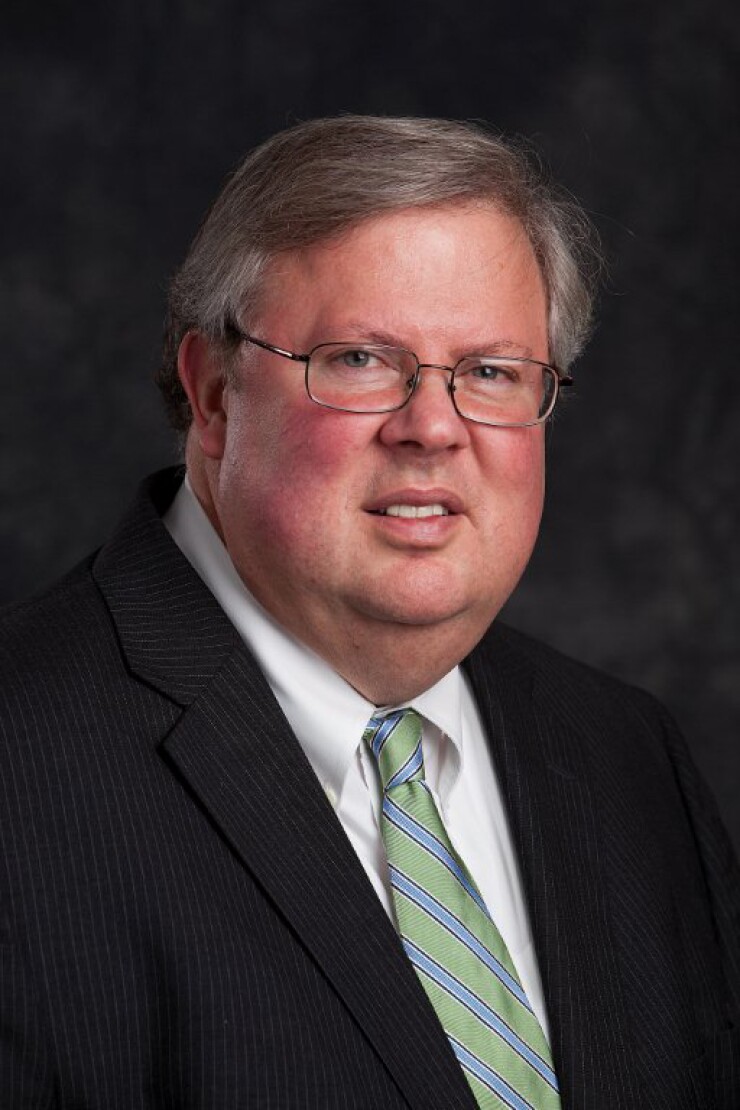WASHINGTON — Federal Housing Administration chief Brian Montgomery said Tuesday the agency is trying to determine the direct cause of losses to its reverse mortgage program, while indicating the FHA opposes any changes to the program that could hurt the elderly.
Though Brian Montgomery has only been head of the FHA for about a month, the agency is already in “fix-it” mode, he said. High up on his agenda are reforming the reverse mortgage program and updating the agency's 1960s-era computer operating system.
Montgomery previously served as FHA commissioner from 2005 to 2009, making this his second shot at fixing some of the problems that existed at the agency when he left nine years ago, he told reporters Tuesday.

His nomination came shortly before the FHA released its annual report to Congress in 2017, which revealed that the agency was hit hard with losses in its reverse mortgage program. Those losses drove the capital reserve ratio down to 2.09% from 2.35% a year earlier. The FHA is required by law to maintain a 2% capital reserve buffer to cover projected losses.
The drop raised questions about whether the agency would follow through with premium cuts that the Obama administration proposed and President Trump had suspended shortly after he took office. It also prompted calls to remove the FHA’s Home Equity Conversion Mortgage program from the agency’s Mutual Mortgage Insurance Fund.
Delving into these pressing issues has made for “a busy 30 days,” Montgomery said.
Reverse mortgages
The home equity conversion program drove a 26-basis-point drop in the capital reserve ratio, sparking concerns not only about the agency’s finances, but also about senior citizens defaulting on loans.
This added to the debate
The conversion program has had a “profound impact” on the insurance fund in the last decade, said Montgomery, but before any decisions about the program’s future are made, the FHA has to understand why it had to dip into the fund.
“If you look at it at the 30,000-foot level, interest rates are still relatively low, house prices have returned in most areas, yet here we are hemorrhaging money out of that portfolio,” Montgomery said. “It’s just one of the things that we’re looking at, and why is that?
The FHA also remains concerned about the impact any changes to the reverse mortgage program would have on senior citizens.
“There are some programs, but not enough, and this program allows seniors to age in place—which they all tell you they want to do, and certainly my mom has told me that—and I always say the best government program, it’s assistance you pay for yourself,” Montgomery said.
Montgomery would also be open to welcoming more proprietary products into the reverse mortgage market.
“I don’t think it was ever written or envisioned that FHA should be 100% of the reverse mortgage market, and I think folks out of that industry would like to see more proprietary products expand,” he said.
Technology platform modernization
When Montgomery first became head of the FHA in 2005, he said his goal was to bring the agency into the late 1990s. Now, the goal is to bring it up to the mid-2000s, he said.
“Back then, I think it was a punchline when you talked about the FHA systems, but it’s no laughing matter this time,” he said.
The FHA relies on a COBOL (common business-oriented language) computer operating system that was invented in 1959, which is mainframe-based. Increasingly
If the operating system were to fail, FHA single-family and multifamily loans would be unavailable until a replacement system was configured.
In 2017, the FHA had a total of 73 outages, some lasting as long as five days, according to the agency.
HUD has been lobbying for years to receive funding to update its computer systems, but Congress has failed to provide it.
“FHA is looking for loose change under the sofa cushion and that manifests itself in a lot of ways that I think work against us,” Montgomery said.
However, the agency is looking at budget-saving solutions, such as borrowing some of the technology infrastructure that the government-sponsored enterprises have built, or collaborating with the Department of Agriculture and Department of Veteran Affairs on shared platforms.
“Congress would be happy to see agencies collaborating,” Montgomery said.
Premium cuts
One of the biggest questions in the housing industry upon Montgomery’s nomination was whether he would revive a proposal under the Obama administration to cut premiums by 25 basis points.
The Community Home Lenders Association noted in a May 30 letter to Montgomery that the January 2015 annual premium cut from 1.35% to 0.85% was “highly successful,” which HUD agreed with in its 2015 annual report.
In its 2017 annual report to Congress, the FHA estimated that had Trump not suspended the Obama-era premium cuts, the capital ratio would have fallen to 1.76% — well below the required 2%.
This estimate, combined with losses from the reverse mortgage program, dashed hopes that Montgomery would reinstate the cuts.
For Montgomery, “it’s probably too early to commit to anything,” even if the reverse mortgage program were stabilized, he said.
“Anything’s on the table, but I don’t know if that’s the direction that we’re going to head this go-around,” he said.





